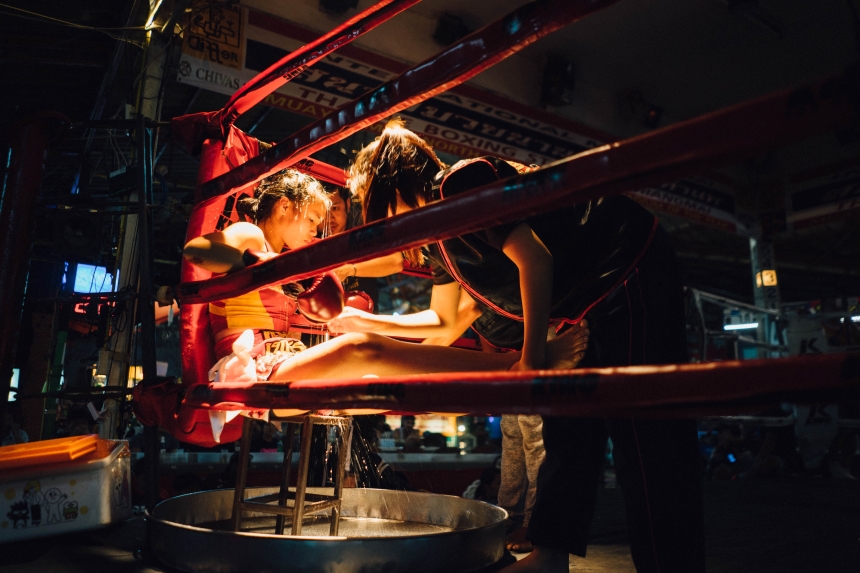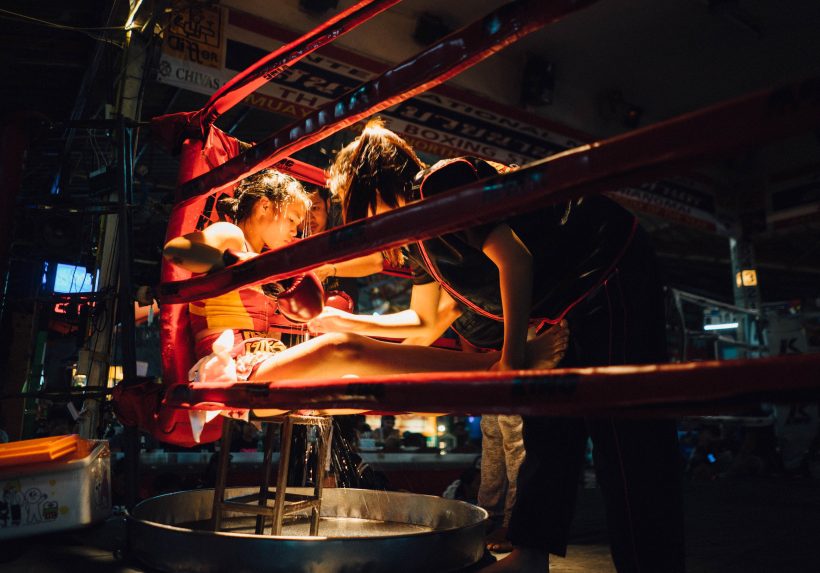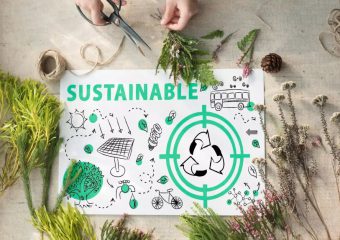Grit, like success, doesn’t happen overnight. Photo by Robson Hatsukami Morgan on Unsplash
In a previous Sarawak Day article, we highlighted the importance of being resilient, especially in a difficult time like the COVID-19 pandemic that continues this year.
Resilience is an aspect of grit – a term popularised and defined by American psychologist Angela Lee Duckworth as “passion and perseverance for very long term goals”.
“Grit is having stamina. Grit is sticking with your future, day in, day out, not just for the week, not just for the month, but for years, and working really hard to make that future a reality. Grit is living life like it’s a marathon, not a sprint,” Duckworth described in her viral TED Talk.
Sadly, according to a 2020 study commissioned by MILO Malaysia, the present generation of Malaysian students and young professionals do not have enough grit to achieve and sustain their successes.
The study – involving an online survey with 103 educators as well as 200 recruiters throughout September 2020 – found that the lack of grit contributes to these youths’ poor performance, underachievement and unhappiness.
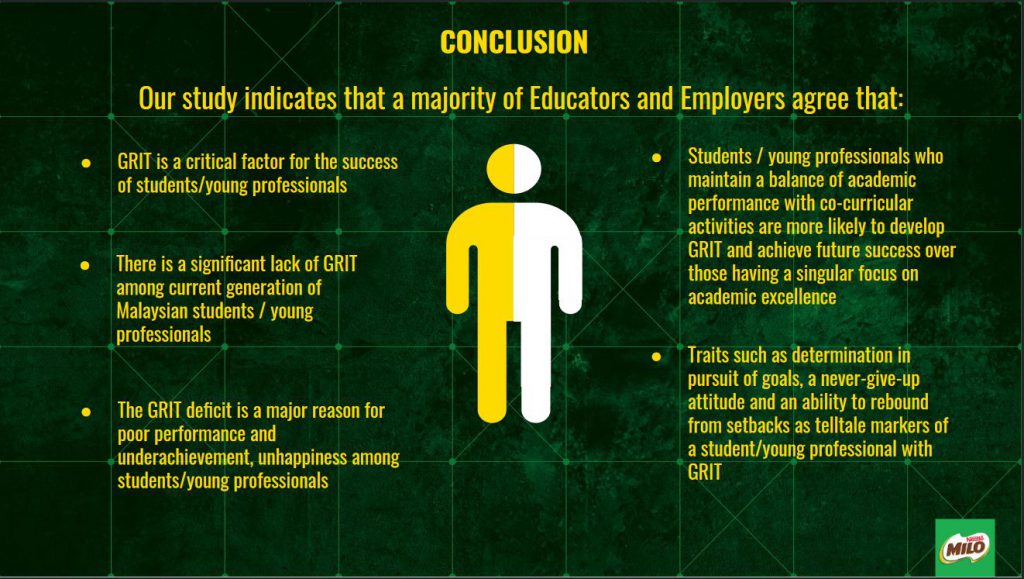
Among other findings, majority of those who took the survey observed that students and young professionals do not have the confidence to overcome failures and commit to their aspirations in the long run.
Thus, they believed that grit is essential for these young generation to prepare themselves for current and future real-life challenges.
“Instead of staying the course, (today’s young generation) give up easily when things get hard, and switch from interest to interest without building real skills or passion.
“The values children learn from a young age are the values they take with them to adulthood, so their inability to focus on long-term goals and to see things through today creates unprepared adults of the future, without the necessary skills to face the volatility and uncertainty of the world ahead,” MILO Malaysia noted.

In other words, grit is a critical trait. It provides the focus, drive and perseverance for students to excel in their studies, professionals to advance their career goals and entrepreneurs to thrive in their businesses.
At the same time, sheer determination isn’t enough, for it needs to go hand in hand with the level of knowledge and skills one possess as well as the environment that provides the support one needs to succeed.
Furthermore, having too much grit, especially when dealing with factors beyond their control to meet their goals such as the impact of the ongoing coronavirus pandemic, can backfire one’s plan and performance, as a number of research has discovered.
Knowing when to be gritty is particularly relevant to those who innovate. Unless their product or service is viable enough to address a market need, it’s best for innovators to forgo impracticable ideas early and shift their focus, efforts and creativity to different approaches or new concepts altogether.
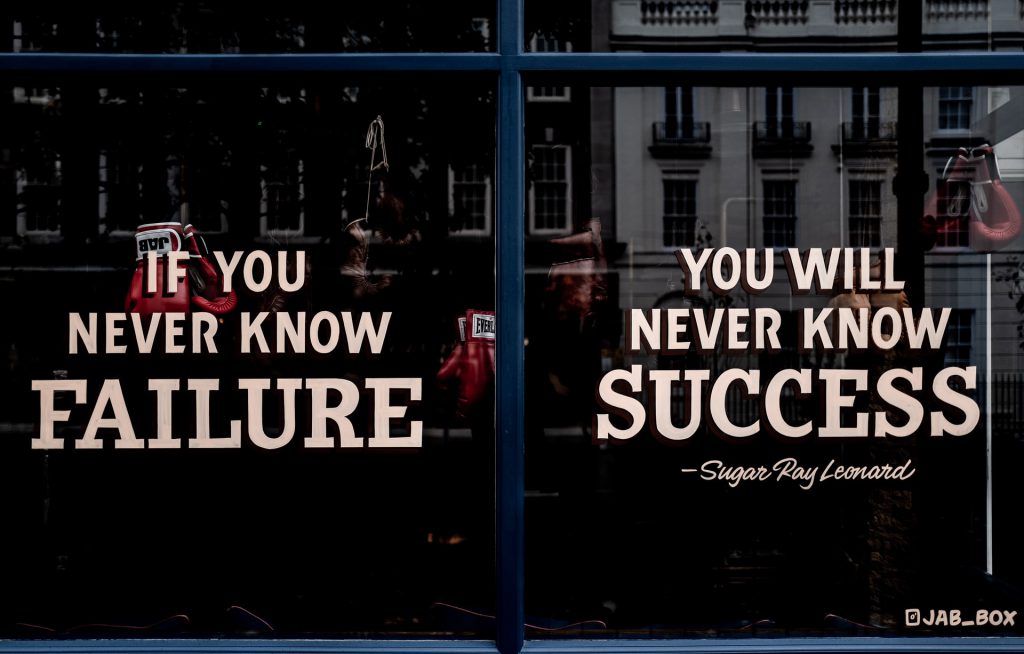
Therefore, as we Sarawakians learn to be more gritty, let us be more pragmatic by reassessing our progress whenever ‘toughing it out’ hasn’t led to our desired results (and changing our goals to become more realistic when necessary).
So long as our grit is driven by focus, passion and humility, among other relevant traits, we’ll be able to reach whatever ultimate aspiration that we have set out in our studies, work and life.
Read more: How a fear of failing will affect you
Read more: Learning from your mistakes
Read more: How adaptable are you?
